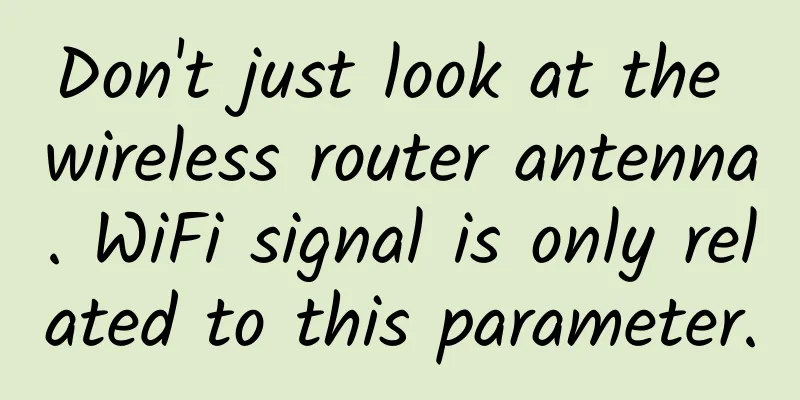5G standardization work encounters obstacles, and the launch of standards may be delayed

|
The high-speed 3GPP 5G standard work may encounter obstacles. SRG's latest report shows that projects related to 5G non-standalone NR specification work have been postponed or stopped. SRG President Michael Thelander said at a recent 3GPP meeting that research projects related to the 15th and 16th versions of the 5G standard have been affected by delays.
Thelander said that in order to complete the work in June as soon as possible and focus more on December, they realized that they could not spend extra time on other things, such as the 16th edition research project. He pointed out that the current "freeze" on new standards, or the discussion on the importance of standards work, will be in effect until at least September. He also pointed out: "We are not delaying the completion date of the research projects, but we have no resources allocated to these projects, so the project time must be adjusted. If we do not plan the time and resource allocation of the project in advance, the project will be delayed. In the case of insufficient time and resources, we can either choose to streamline the functions or delay the release of version 16." Thelander cited the standardization work on Short TTI as an example. The technology aims to reduce latency from 15 to 20 milliseconds on LTE networks to about 8 milliseconds. This move is important for the deployment of 5G networks, as LTE will maintain wider coverage and provide network performance similar to 5G to support 5G use cases. Thelander said that preliminary work on this technology would be completed in September. However, it has been officially delayed to December. Although Short TTI is not mandatory for initial 5G deployments, operators hope that 5G and LTE networks can coexist. In addition, similar problems have arisen in the work on narrowband IoT technology. Thelander explained: "If there is ambiguity or correction in the specification, then commercial multi-vendor solutions cannot be used. This will lead to vendor misunderstandings and 5G interoperability issues." SRG said that the 15th version of the standard work will be completed in June 2018. The fast track of 5G Earlier this year, 3GPP, under pressure from operators, agreed to move up the deadline for the 5G non-standalone NR specification from June 2018 to December 2017, while Release 15 of the standard is still scheduled for release in June 2018. "The 3GPP update schedule keeps the overall Release 15 schedule unchanged, with operators and vendors wanting the 5G NR standard to be released sooner rather than replaced by other standards," SRG said in a research report. Several operators and vendors said at the 2017 Mobile World Congress that they advocated for 3GPP to quickly launch the relevant standards. Among them, AT&T has long been a supporter of the 5G NR standard, and other operators include Sprint, Telstra, BT, Deutsche Telekom, KDDI, Korea Telecom, LG Uplus, SK Telecom and Vodafone. Vendors supporting the proposal include Ericsson, Qualcomm, Huawei, Intel and ZTE. Adam Koeppe, vice president of operator technology planning at Verizon, said Verizon believes that the update schedule of 3GPP and the current framework can support the company's goals. "Verizon supports the adoption of 3GPP protocols that are in line with industry standards direction to enable early 5G product development, core network evolution, and accelerate the realization of 5G," Koeppe said in a statement. AT&T and Verizon will begin commercial deployment of 5G-based services next year. |
<<: How will the network be reconstructed in the 5G era?
>>: Cutting in while driving is annoying. WiFi actually takes up lanes too.
Recommend
F5 Launches Industry’s First Integrated Application Delivery and Security Platform to Enable Hybrid Multi-Cloud Infrastructure in the AI Era
F5 recently announced the launch of the F5 Applic...
my country's 5G is still in the introduction stage, and integrated applications are still in the running-in stage
Statistics show that by the end of 2020, about on...
spinservers New Year promotion: $39/month-E3-1280v5/32GB/1TB NVMe/30TB@10Gbps
spinservers has released several special packages...
[11.11]RAKsmart: US servers start from $30/month, Japan/Korea servers start from $59/month, cluster servers start from $109/month
A few days ago, we shared RAKsmart's recharge...
AkkoCloud: UK/Germany/US CN2 GIA line starting from 99 yuan/quarter, 500M large bandwidth CN2 GIA
Friends who need CN2 GIA line hosts can pay atten...
edgeNAT Korea/Hong Kong KVM 20% off, top up 500 yuan and get 100 yuan free
edgeNAT is a Chinese VPS hosting company establis...
iWebFusion: $9.38/month-4GB/30GB/2TB/Los Angeles & North Carolina data centers
iWebFusion (iWFHosting) was founded in 2001. It i...
Slow Internet speed? These 8 methods can completely solve it
Here are 8 ways to fix a slow Internet connection...
Campus "Full Wireless" Lets Data "Speak"
The construction of the campus network of Beijing...
Skipping 5G, the United States starts working on 6G: Apple, Google and others join the "Next Generation G Alliance"
Apple’s 5G iPhone has just been launched, and it’...
5G development strategies and measures of major countries and regions and their implications for my country
[[394646]] At present, a new round of scientific ...
Edge computing vs. cloud computing: Which is more efficient?
Cloud computing provides businesses with the oppo...
5G is coming, do I need to change my SIM card?
2019 is the first year of 5G. With the issuance o...
Six IT trends to watch in 2023
Businesses and society at large continue to turn ...
VirMach: $27.3/month-E3-1240v1/16GB/1TB/10TB/Los Angeles and other data centers
Last time, I shared the End of Life Plans series ...









